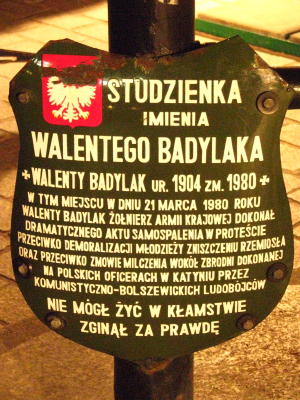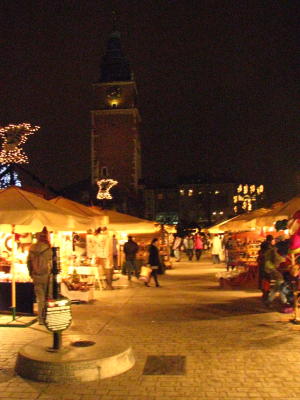There is a water pump and a plaque in Krakow's market square.
It is dedicated to a man who set himself on fire in protest because he could not live a lie about Katyn.
Here are some photos I took earlier today.
Could someone please translate the plaque, please.
I tried to find a thread I could post these on and although there are a few on Katyn, I did not think they were suitable.
(If you find an appropriate place please just add this to it)
It is dedicated to a man who set himself on fire in protest because he could not live a lie about Katyn.
Here are some photos I took earlier today.
Could someone please translate the plaque, please.
I tried to find a thread I could post these on and although there are a few on Katyn, I did not think they were suitable.
(If you find an appropriate place please just add this to it)

IMG_2101_1.JPG
IMG_2099_1.JPG
IMG_2100_2.JPG
 PolishForums LIVE / Archives [3]
PolishForums LIVE / Archives [3]